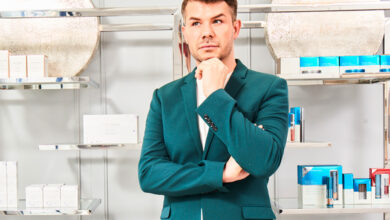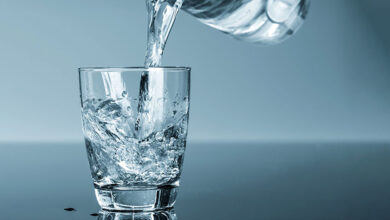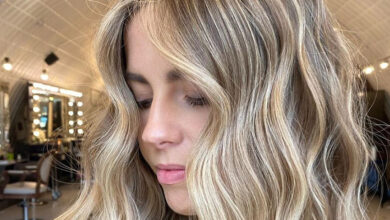Ten surprising shower tips for radiant-looking skin
Editorial Feature
Do you have the same number of showers despite the seasons? How much soap do you use? Do you dry your skin thoroughly or apply moisturiser while the skin is still wet? Just how hot do you like your shower?
These are all questions you should be asking yourself if you have ever wondered just what the correct way to shower is. And especially if you suffer from dry or sensitive skin.
High-profile celebrities have been debating publicly about how often they shower, but according to ARRAN Sense of Scotland we could all do with reviewing our showering habits.
1. Shower less
It might surprise you to hear that most people are probably showering wrongly. The main issue is overcleaning, most of us shower too often and strip the skin of its natural oils but the length of our showers, when we have them, and how we use products are all important.
Skin is actually very clever; it cleans itself and keeps itself healthy by generating a layer of natural oils on the surface. If you shower too frequently you will disrupt the skin’s natural PH balance and strip it of its natural protection.
How often should you shower is a question that celebs have been weighing in on, with the likes of Kristen Bell, Ashton Kutcher and Mila Kunis sitting firmly in camp ‘don’t wash too often,’ while others like Dwayne Johnson shower up to three times a day.
So, what is the magic number when it comes to showers?
One shower a day is more than enough to keep you clean. Some experts actually recommend every other day, depending on your activity levels. Certainly, if you adapt your daily routine to the one shower a day rule and you should see your skin start to benefit. If you’re heading to the gym after work, then don’t shower in the morning for example.
2. Think about timings
A shower in the morning wakes you up and gets you ready for the day, but skin care experts are unanimous that the best time to shower for skin is at night.
If you’re sticking to one shower a day, then nighttime is without a doubt the best time to do it.
Showering at night removes the build-up of dirt and bacteria on the skin’s surface ready for the skin to regenerate as you sleep. By going to bed with clean skin you will limit the opportunity for pores to become clogged as this rejuvenation process happens.
3. Try seasonal showering
You can adapt your shower routine with the seasons too – otherwise known as ‘seasonal showering.’ Winter months are harsher on skin, and over-washing can further strip skin of natural oils, which can, in turn, lead to already dry skin becoming flaky and itchy.
Couple this with exposure to changes in temperature, going from very cold outside to warm central heating, or getting out of a hot shower into a cold room and it’s a recipe for disaster for the skin.
In summer, you may need to shower more frequently as the temperature rises, especially if you’re exercising or have an active job. If you suffer from hay fever, then a shower before bedtime will help to rinse off any pollen residue.
If you shower more than once a day, there should be no need to use soap on the entirety of your body on all of these occasions.

4. Focus on ingredients
Just as you would with food, you need to check what’s in the products you use on the skin.
Look out for natural products that are fragranced with essential oils rather than harsh chemicals. PH levels are important too, the epidermis has a PH level of 5.5 so find something as close to that as possible and you won’t go far wrong.
If you want something that is gently exfoliating, then choose a soap with oatmeal or wheatgerm that will remove dead skin cells without being too abrasive.
Glycerine is great for the skin as it helps the skin to retain moisture and relieve dryness.
Use soaps that enrich your skin and protect your natural skin barrier. And it doesn’t have to be shower gel. Bar soaps are making a real comeback and no longer fit the stereotype of being drying and harsh on the skin.
5. Wash only where it’s needed
Actor Ashton Kutcher admitted that he just uses soap and water on his “armpits and crotch daily,” but “nothing else ever,” his wife Mila Kunis said along the same lines. Where lots of people found this to be unhygienic, skin experts tend to agree with the celebrity couple.
There’s something to be said about only washing the areas of the body that really need it, especially when showering daily. Again, it’s about letting the skin do its natural thing to protect itself. Perhaps wash your entire body just once or twice a week and use your daily shower to focus on the areas that have lots of sweat glands or where bacteria can gather.
For people that suffer with acne on their backs and other areas of the body, the worst thing you can do here is to dry these areas out by over cleansing. It is counterproductive as the body overcompensates and makes more oil.
6. Scrub-a-dub-dub
Exfoliating two to three times a week can help to remove the build-up of dead skin cells on the skin’s surface, but ‘scrubbing’ should be most definitely off the agenda. When exfoliating, try to use something gentle and natural rather than an abrasive surface. Work across the skin in large circular movements and work towards your heart to encourage detoxification.
Baking soda, finely ground sugar, coffee grounds, finely ground almonds, oatmeal, and finely ground sea salt will all exfoliate without being too harsh on the skin.
7. Not too hot, not too cold, but just right
Dwayne Johnson AKA The Rock says he has three showers a day – one hot, one cold and one warm, but which of Dwayne’s dips should we emulate?
Cold showers can help with circulation and muscle recovery whereas hot showers are thought to relax the muscles and open pores, but when talking about solely looking after skin, a warm shower is best.
Hot water is another thing that strips the protective oil that your skin needs, so around 36C the ideal temperature for it to not to be harsh on the skin. As a rule of thumb, if your skin is turning red it’s time to turn the heat down.

8. Set the timer
Standing in the shower may be the only moment’s peace you get in a day, but there are several reasons why shorter showers are better. Namely, skincare.
Reducing the time you spend in the shower is not simply better for the environment, it’s great for skin too.
Five to ten minutes is ample time to clean what needs to be cleaned and perhaps have a few minutes to spend daydreaming, waking yourself up or letting the day go if you’re showering at night.
Pop on a timer, or a couple of songs that you love as a reminder of when to get out.
9. To dry or not to dry?
Most people are guilty of not drying off after a shower – but are there any benefits to this?
Applying moisturiser to damp skin can actually lock in the moisture, so yes there are benefits to not drying your skin fully. Pat yourself off and then apply your product to the skin. A word of caution though, you should dry off intimate areas fully otherwise you could be prone to infections. And always let your moisturiser sink in and your skin dry fully before getting dressed.
10. Replace essential oils post shower
Moisturise your skin after showering with something like ARRAN Sense of Scotland’s Imachar Body Lotion which includes uses shea butter, coconut oil and aloe vera for the best possible formula that glides across the skin and is absorbed immediately.
ARRAN Sense of Scotland creates bath, body and home fragrance collections inspired by and proudly made on the Isle of Arran. From the freshwater spring to a pinch of seasoned gorse, there is a bit of Arran in every single product.
To see your company in any upcoming features we are arranging please email editorial@hurstmediacompany.co.uk






